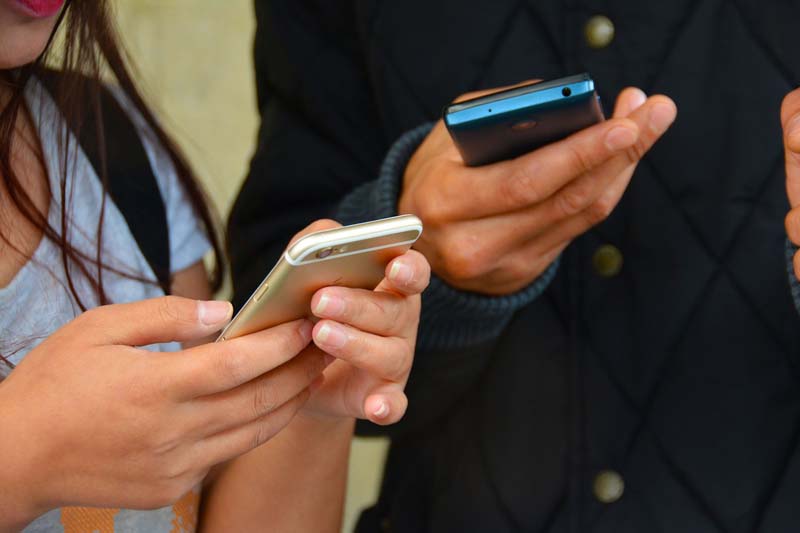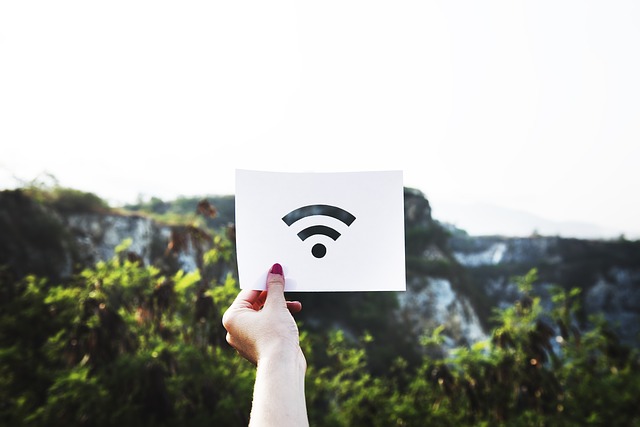
Staying Cyber Safe on Vacation: 4 Tips for This Summer
August 14, 2017Here we are already in summer, a period conducive to family, relaxation and travel. Whether you choose to tour around your region or around the world, it is likely that your faithful laptop will accompany you (you never know …), just like your smartphone of course. You may want to check your emails via the public Wi-Fi of your hotel. Or your kids may want to play video games on your laptop. However, if your cybersecurity is failing, you might endure some unpleasant surprises…

Photo credit: pixabay.com
Because it is a reality: if you have not taken the time to secure your connected devices, you risk suffering. Malware like WannaCry is spreading quickly. They exploit known software vulnerabilities, which companies or individuals do not always take the time to patch. The Mirai botnet used about 100,000 non-secure connected devices, like security cameras, to overwhelm the Dyn service provider, causing a massive outage that put off many websites offline.
Parallels must be drawn between cyber-attacks and, on the other hand, viruses or bacteria. It is only when the origin of the disease has been identified that good personal hygiene measures have been imposed on the general public. Previously, surgeons did not necessarily wash their hands before surgery, same finding among cooks before putting themselves to the stove. Diseases then spread rapidly from person to person. When medical research has been able to establish the role of microscopic organisms in diseases, and the importance of good hygiene to get rid of them, washing hands becomes a habit and therefore a brake on epidemics.
Clearly, WannaCry and Mirai have been able to spread thanks to poor technological hygiene on the part of the users.
On the other hand, we should not forget mobile devices: if malware is mainly targeted at desktops and laptops, cybercriminals have not lost interest in mobile phones, which invites users to do the same . For the general public, cybersecurity is, for the most part, linked to their PC and the powerful concentrate of technology that holds in the palm of the hand is often neglected. However, smartphones are vulnerable and good practices are needed to neutralize them.
Be in charge of your security
Connected devices are not legally required to be protected from cybercriminals. It is therefore the responsibility of consumers, as responsible citizens, to secure their equipment.
Here are four cyber security best practices to keep your equipment safe and secure applications and data hosted there.
1. Avoid the pitfalls of Wi-Fi
Public WiFi hotspots are a source of risk. Your online connections are likely to be intercepted in different ways, by a particular man-in-the-middle attack. Imagine a malevolent person present in a public place, on the terrace of a cafe for example and that he named his equipment “Cafe-WiFi free”. When you connect to it, it connects you to the Internet via its equipment but it is also able to divert all the traffic between you and your shopping site for example. It thus obtains the detail of your payments, your address, your login identifiers, etc.
To prevent sensitive data from being intercepted, you must use a trusted VPN service when you access a public WiFi network. If you are used to connecting to public hotspots, there are many inexpensive, inexpensive or free VPN services that will secure your transactions. One of the golden rules is to avoid connecting to unknown Wi-Fi networks, for example, in a cafe where you do not have your habits. Free WiFi in a hotel where you stay has more chance of being secured. You can also use the mobile hotspots of your Internet service provider to connect your smartphone.
Another good practice is to make sure that your connection is secured or encrypted when you connect online from a public place or that you make banking or commercial transaction. Check in the address bar of your browser that the address starts with “https: //” rather than “http: //”, to validate that SSL encryption protects your transactions. Enabling SSL is essential, but it only secures communication flows, not your data, which is vulnerable when connected to a malicious access point. So, if you connect to a Wi-Fi network, make sure of its legitimacy.
Finally, this little bonus advice: disable automatic Wi-Fi connections on your device. Otherwise, if you connect to a malicious access point, your device may remember it and reconnect to it automatically when that access point is back in range.
2. Strengthen your passwords
One of the main reasons why it is often simple to hack personal accounts is that many users are content with the same password for different accounts: such a practice is obviously dangerous! Of course, it is not necessarily simple to remember 50 different passwords, if not more. And yet, differentiating your passwords is a guarantee of security. There are online password management services, such as LastPass, that can help you because you just need to remember only one master password. Such services can also create strong and random passwords for each application that you access, and then store them in an encrypted format.
3. Promote two-factor authentication
More and more applications are imposing two or more steps to authenticate their users. This approach is relevant, although some consider it tedious: it effectively fights identity theft or ransomwares. It will only take a few more seconds before your security code appears on your smartphone and you can enter it to authenticate. These few seconds will help you protect yourself, your online accounts and your data. Recall that security is a feature and not a bug…
4. Identify viruses and malware
Install antivirus and antimalware, keep them up-to-date and run on a regular basis. But make sure you choose the right tool. There are indeed many products that claim to be security tools, but that are, in reality and somewhat ironically, malware. No antimalware can be 100% efficient and it is important to schedule regular execution – once a month at minimum – of a second or third security tool to analyze your equipment or network. Many publishers offer free online versions of their tools or offer them to you for a trial period. The majority of antimalware has a firewall and you must activate this additional protection.
Plan and be alert!
Do not get caught up in this summer. You are solely responsible for your safety. Take the necessary steps before going on vacation and stay alert throughout. By taking some common sense and hygiene measures, you will have a much better chance of keeping yourself away from any digital disaster.
This article origionally appeared in Huffington Post
[142 total views]

